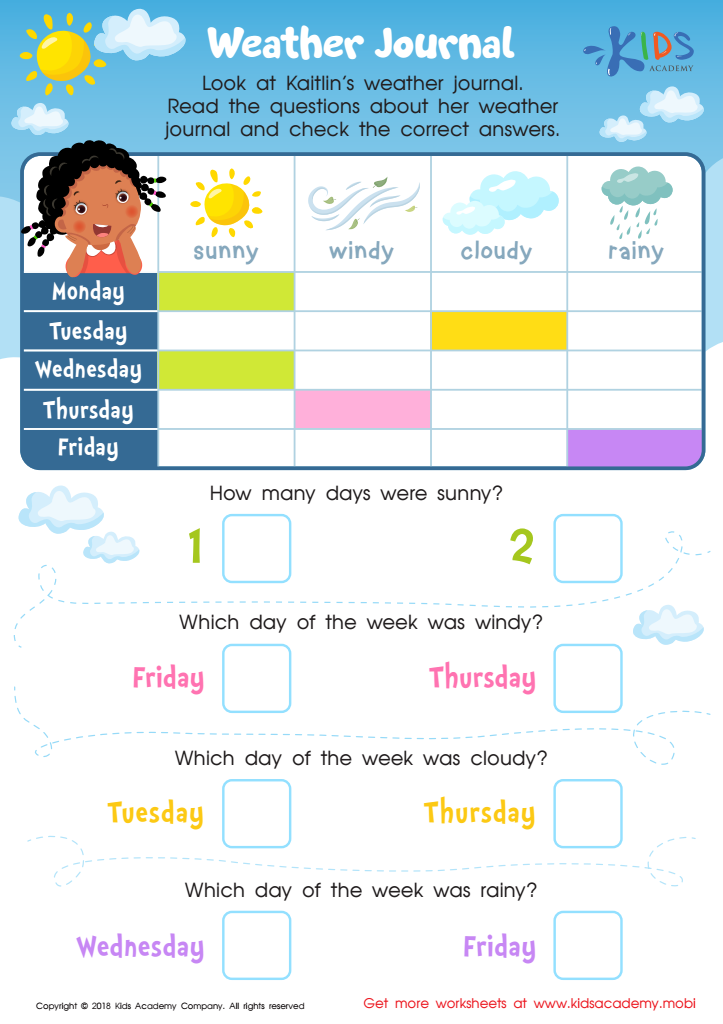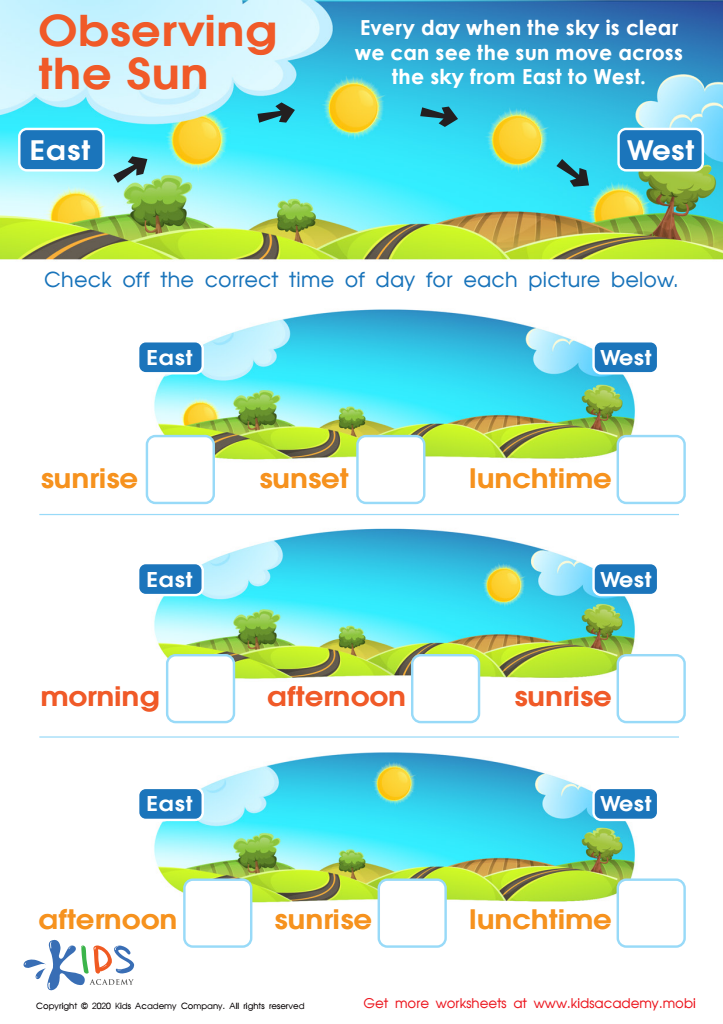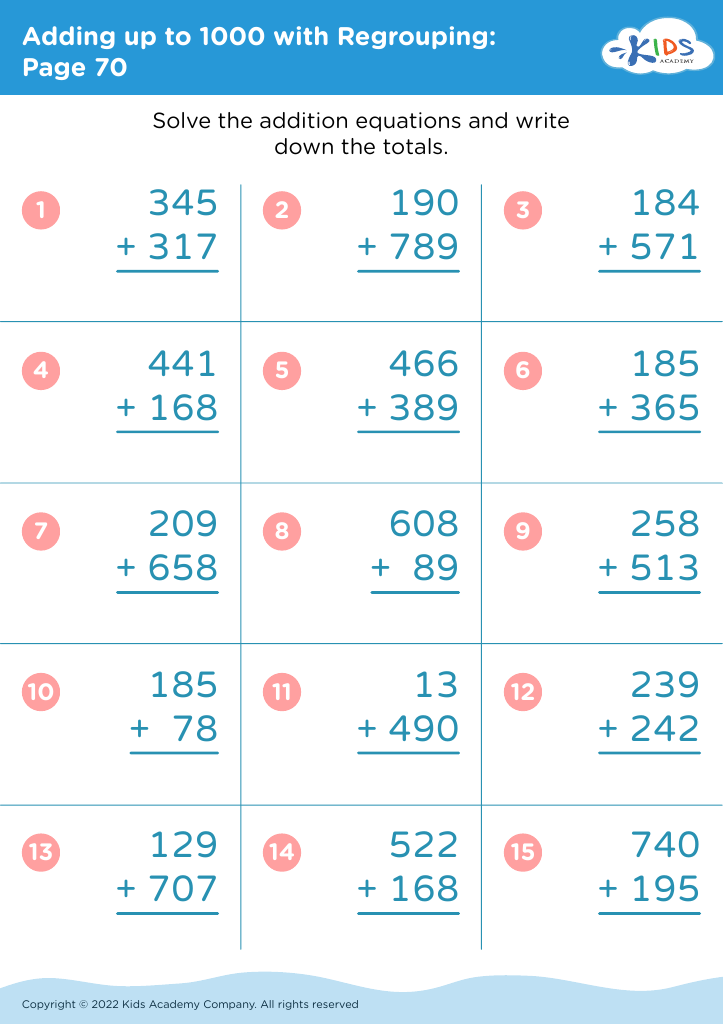Analyzing patterns Worksheets for Ages 5-7
3 filtered results
-
From - To
Enhance your child's analytical skills with our "Analyzing Patterns Worksheets for Ages 5-7" at Kids Academy! Designed to foster critical thinking, these worksheets introduce young learners to essential early math concepts through engaging activities. Each worksheet features colorful patterns and sequences that challenge children to recognize, predict, and extend patterns, promoting logical reasoning and problem-solving skills. Perfect for both classroom and home use, these resources are a fun and effective way to build a strong foundation in mathematics. Support your child's learning journey today with our expertly crafted pattern analysis worksheets!


Weather Journal Worksheet


Observing the Sun Worksheet
Analyzing patterns is a foundational skill crucial for young children, aged 5-7, since it establishes the groundwork for various essential cognitive and academic proficiencies. Patterns are a basic element of math, helping children understand sequences, predict outcomes, and recognize relationships between numbers, shapes, and objects. This forms the basis for algebraic thinking that will be developed later in their education.
Integrating pattern recognition into early learning fosters critical thinking and problem-solving skills. Children learn to observe differences and similarities, which sharpens their attention to detail. It also facilitates language development as kids describe and explain the patterns they see.
Moreover, recognizing patterns in everyday experiences can boost confidence and provide a sense of order to a child’s environment, making new concepts easier to grasp. For example, patterns in nature or a consistent bedtime routine contribute to their understanding of their surroundings.
Teachers and parents can incorporate pattern activities, like sequencing games or storytelling, into daily routines, making learning engaging and relevant. Thus, caring about and nurturing pattern recognition in early childhood development equips children not only for future academic success but also for effective daily functioning and lifelong learning.

 Assign to My Students
Assign to My Students

















